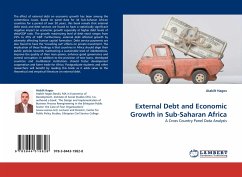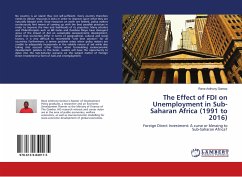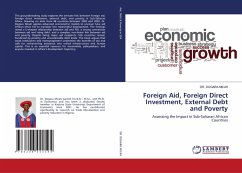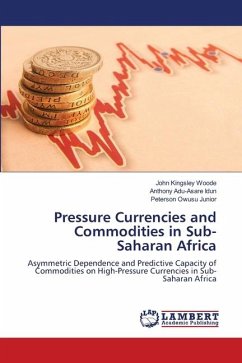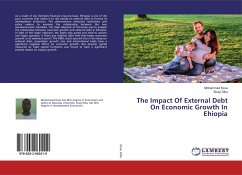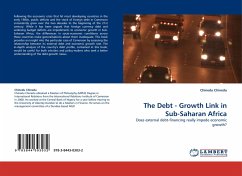
The Debt - Growth Link in Sub-Saharan Africa
Does external debt-financing really impede economic growth?
Versandkostenfrei!
Versandfertig in 6-10 Tagen
32,99 €
inkl. MwSt.

PAYBACK Punkte
16 °P sammeln!
Following the economic crisis that hit most developing countries in the early 1980s, public deficits and the stock of foreign debt in Cameroon consistently grew over the two decades to the beginning of the 21st century. While it has been argued that foreign currency debt and widening budget deficits are impediments to economic growth in Sub-Saharan Africa, the differences in socio-economic conditions across these countries make generalisations about them inadequate. This book provides an insight into the particular case of Cameroon by assessing the relationship between its external debt and ec...
Following the economic crisis that hit most developing countries in the early 1980s, public deficits and the stock of foreign debt in Cameroon consistently grew over the two decades to the beginning of the 21st century. While it has been argued that foreign currency debt and widening budget deficits are impediments to economic growth in Sub-Saharan Africa, the differences in socio-economic conditions across these countries make generalisations about them inadequate. This book provides an insight into the particular case of Cameroon by assessing the relationship between its external debt and economic growth rate. The in-depth analysis of the country's debt profile, contained in this book, would be useful for both scholars and policy-makers who seek a better understanding of the debt-growth nexus.



